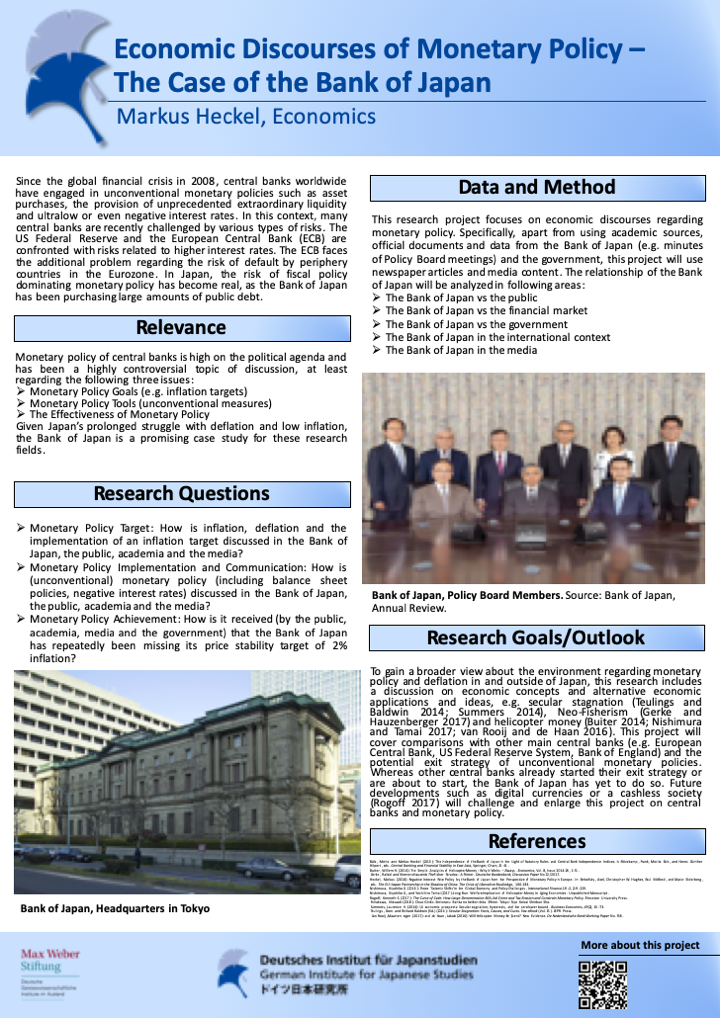Research Overview
Economic Discourses of Monetary Policy – The Case of the Bank of Japan:

English, PDF (1,2 MB)
Economic Discourses of Monetary Policy – The Case of the Bank of Japan
November 2018 - August 2024
Since the global financial crisis in 2008, central banks worldwide have engaged in unconventional monetary policies such as asset purchases, the provision of unprecedented liquidity and ultralow or even negative interest rates. In this context, many central banks are challenged by various types of risks such as higher interest rates and fiscal dominance of monetary policy. Thus, monetary policy of central banks is high on the political agenda and has been a highly controversial topic of discussion in academia and media. This includes monetary policy goals (e.g. inflation targets), tools of monetary policy (unconventional measures) and the effectiveness of monetary policy. Given Japan’s prolonged struggle with deflation, the Bank of Japan is a promising case study for these research fields. Among others, this research project covers following research questions:
- Monetary Policy Target: How is inflation, deflation and the implementation of an inflation target discussed in the Bank of Japan, the public, academia and the media?
- Monetary Policy Implementation and Communication: How is (unconventional) monetary policy (including balance sheet policy, negative interest rates) discussed in the Bank of Japan, the public, academia and the media?
Recent Publications
Team
 Markus Heckel (until August 2024)
Markus Heckel (until August 2024)Head of research group 'Sustainability and Resilience'